Suspect you may have PPA? Here are 8 of the most common signs.
The weeks and months after giving birth is a significant time in your life. In fact, it’s probably one of *the* most memorable times ever. But there’s also a lot of confusion, a steep learning curve, and emotions usually run pretty high. That makes sense.
Between recovering from birth (especially in cases where it was traumatic), learning to breastfeed, dealing with sleeplessness, and sitting with new mom anxiety, this period isn’t an easy one. (As if that’s not an understatement, right?!)
Of course, there’s a lot of joy during this stage of the perinatal period. But there’s also a lot of mood challenges, mental health difficulties, and anxiety.

Having a new baby is confusing enough as it is. Hey, you have the needs of a whole human being to look out for! But your wellbeing matters just as much and shouldn’t be overlooked. And when you’re not even clear about your own mood changes, that can just make everything feel so much more confusing.
If you’re reading this in the postpartum period and you know *something* feels off, there’s a chance you’re dealing with postpartum anxiety (PPA).
What is PPA?
PPA is an anxiety disorder that feels mostly the same as general anxiety. The difference is that it occurs during the perinatal period whereas regular anxiety can happen at any point in your life. It’s different from what we know as the “baby blues” which is a temporary emotional dip that many women experience right after birth as their hormones adjust.
If you already have an anxiety disorder or you’ve experienced mood difficulties in the past, you are at a greater risk of suffering from PPA as well. (Though, there’s no way to be 100% certain.) A lot of women ask what postpartum anxiety feels like, when it happens, or how to get clear on whether or not PPA is at play.
Below, I’ve rounded up some of the most common indicators that you could have PPA. How many do you relate to?
8 signs you may be experiencing postpartum anxiety:
1. You feel nervous for most of the day.
Do you spend a significant portion of your waking hours worrying about something? A lot of women who experience postpartum anxiety say that their thoughts jump from one fear to the next, to the next. This could be about anything related to your baby’s sleeping or feeding habits, to you missing an important cue, or maybe you’re anxious about returning to work and how you’ll balance both areas of your life. The question to ask yourself here is if the anxiety is infrequent, or if it’s taking up most of your days.
2. Your mind is preoccupied with intrusive thoughts or “what if” thinking.
Intrusive thoughts are the scary thoughts or images that pop into your mind for no reason. Usually they relate to harm coming to you or your baby and they can be quite disturbing. You might, for example, be dining on a balcony and suddenly have a sudden mental image of your baby slipping off the side. Even though these thoughts are hard to sit with, they’re just a sign of anxiety and don’t mean anything beyond that.
3. You struggle to sleep at night.
Alright, we all know that moms with newborn babies spend a lot of the night hours awake, feeding, or settling cries. These are exhausting, but normal, sleep disturbances. If, however, you regularly experience insomnia and are unable to sleep beyond that (i.e. when your infant is fast asleep, you’ve already fed her, and you have the opportunity to rest), that’s one of the early signs of PPA.
4. You’re more irritable or angry than usual.
This isn’t one of the most obvious signs of anxiety that we first think of but anger and being quick to snap is a sign of PPA. Think about it: anger or irritability come up more easily when our needs aren’t being met. Since anxiety drains your batteries and is a constant burden on your mental energy, you’re more likely to be at capacity and therefore quicker to anger.
5. You experience physical symptoms like nausea or headaches.
When we think of anxiety, we may think about that uncomfortable, queasy feeling in the stomach. That’s a physical sign that something is off and postpartum anxiety could be taking a toll. Other physical signs to look out for could include difficulty breathing, a tightness in the throat or chest, fatigue, nausea, headaches, or brain fog. Ask yourself when these feelings set in and if they’re accompanied by anything else on this list.
6. You can’t stop overthinking.
Overthinking is also known as ruminating. Many anxiety sufferers deal with this mental habit. Do you regularly find yourself getting stuck on one thought that you just can’t let go of? For example, maybe a conversation really bothered you and you can’t stop replaying it in your head.
You could also be dealing with a baby-related issue (her stomach is upset, she isn’t sleeping through the night, or you’re having trouble with breastfeeding). Ruminating is when you go over the problem again and again in your mind. If your thoughts are repetitive, on loop, and never actually reach a solution, postpartum anxiety could be the real issue.
7. You suspect that the anxiety is going overboard.
What’s the difference between normal worry and postpartum anxiety? When you’re the main caregiver of a delicate and tiny baby, it’s only natural that some things are going to make you nervous. When your baby cries and you don’t know why, that’s upsetting. If he has an infection, it’s normal to worry.
The issue is when your level of worry is disproportionate to the trigger. Or, if the cause of your anxiety isn’t logical or likely but is having a negative effect on your wellbeing anyway, that could be a sign of a bigger issue.
8. You’ve changed certain behaviours in an effort to avoid or control uncomfortable feelings.
Certain symptoms of anxiety (like intrusive thoughts, phobias, or worry) can actually become so serious that we start to change how we act in order to avoid the discomfort. This is not what we want to do, as it gives power to the anxiety.
This is also a sign that you’ve attributed too much meaning to your thoughts and may need help managing them. Say you often catch yourself worrying about an accident occurring by the river near your home, for example. If you start avoiding walking past the river even though it’s on the way to several areas where you need to go, that would be a sign of anxiety becoming problematic.
How many of eight signs of postpartum anxiety do you relate to? I hope this content always helps educate and give insight into personal patterns.
I Created a FREE Mom-Anxiety Guide…
If you’re here, I want you to know that even extreme cases of PPA are treatable. If you know that you’re dealing with postpartum anxiety (or you’re just feeling anxious in general), I want you to know about my anxiety course for moms, called The Calm Mom.
This is the program I wish I had when my kids were babies, the one that I’ve filled with tools I use in my therapy practices, and all the nervous system regulation skills that will help at any stage of motherhood. Learn more about The Calm Mom here.
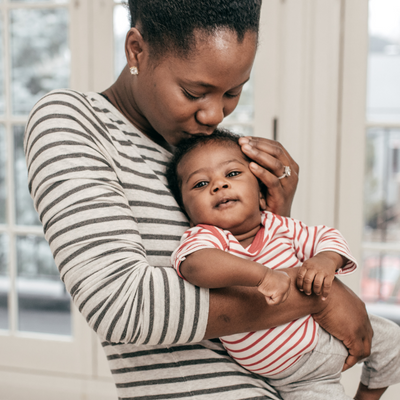
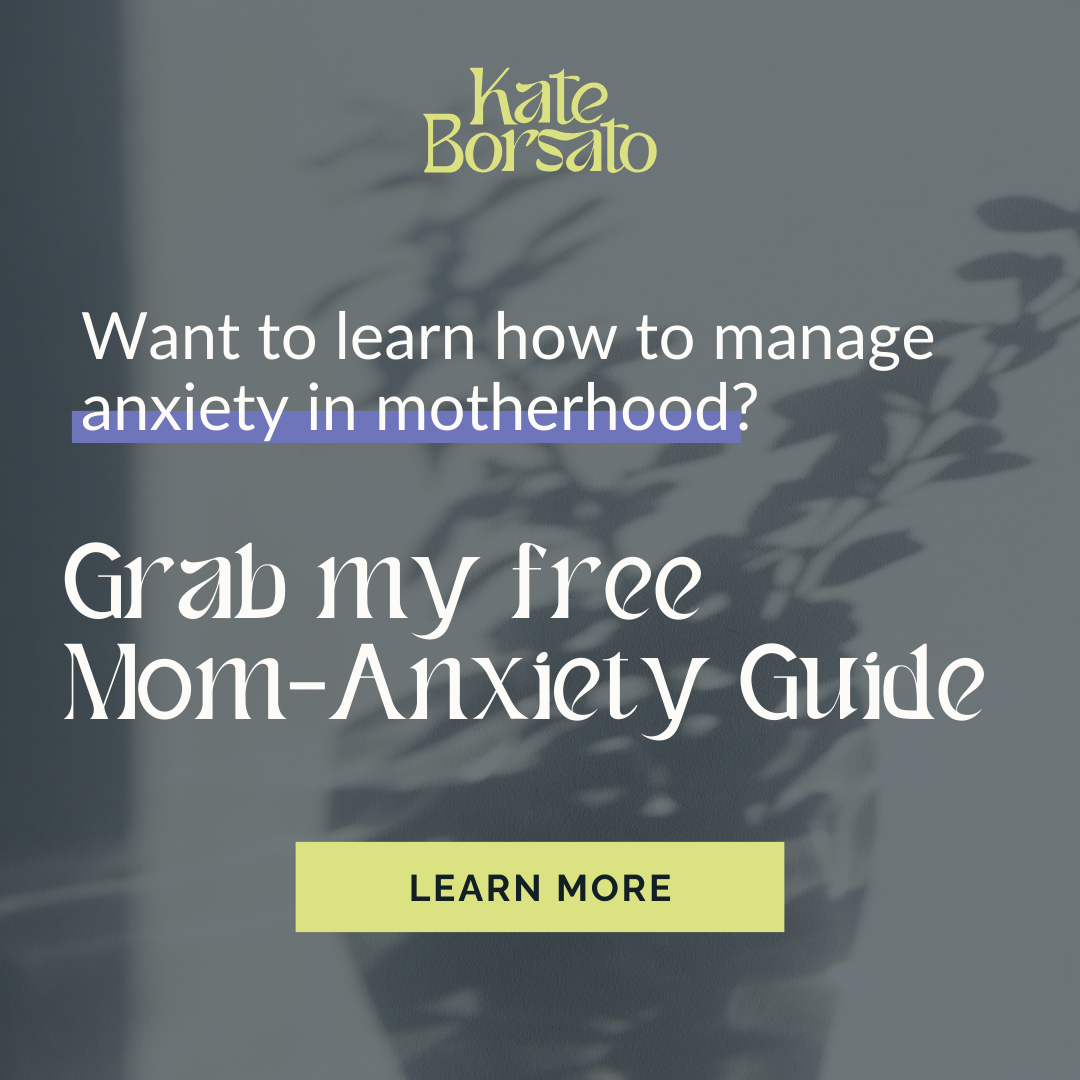


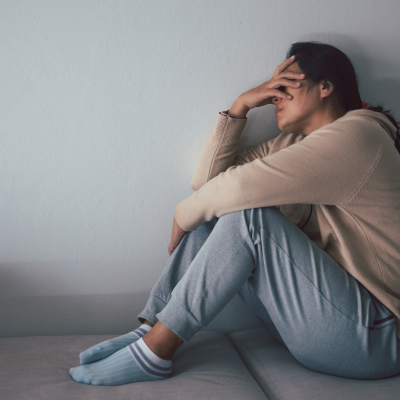
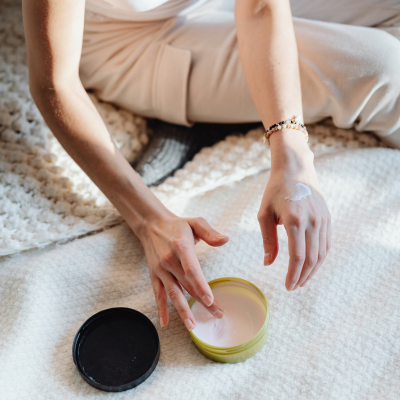

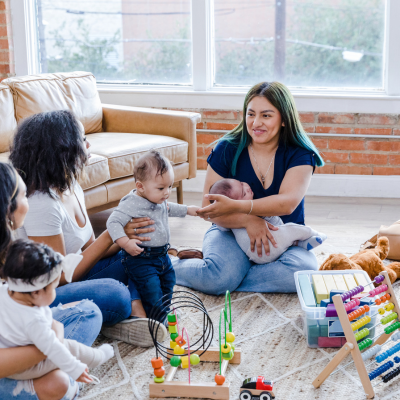

Comments +